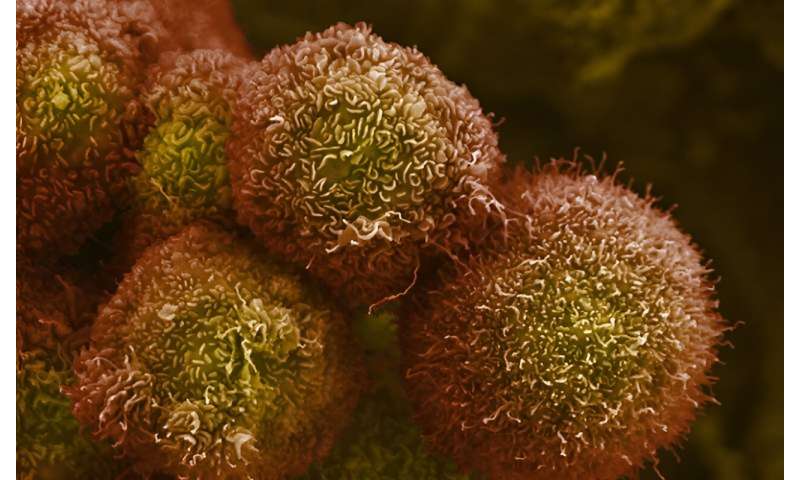Pancreatic cancer therapy cleared for clinical trials

Pancreatic cancer is one of the most lethal forms of cancer, with a five-year survival rate of less than 8%, according to data from Public Health England. In the U.K. alone, approximately 11,000 new cases are diagnosed annually.
Life sciences company Qualigen Therapeutics, who licensed the UCL technology, was granted permission this week to proceed with Phase I clinical trials for QN-302 by the Food and Drug Administration in the U.S.
The novel therapy was invented and developed by Professor Stephen Neidle and his group, based at the UCL School of Pharmacy. The team created specially designed compounds, to target unusual signal sequences (abnormalities) present in elevated levels in many cancer-associated genes. By blocking these signal sequences, the drug has been shown to stop cancer growth in pre-clinical models.
They were able to pioneer this revolutionary approach to cancer therapy with backing from the UCL Technology Fund and the Pancreatic Cancer Research Fund.
The first patients to be included in the trial with QN-302 are expected to begin receiving the therapy as early as autumn 2023.
Stephen Neidle, emeritus professor of chemical biology at UCL and a former professorial fellow of Cancer Research UK, commented, "I'm extremely delighted that our novel experimental drug QN-302 is at this very exciting stage of having FDA approval for clinical evaluation. I'm so pleased that Qualigen Therapeutics has not only shared our vision, but has taken QN-302 with remarkable skill and speed to this important milestone. I am proud that my team has long been pioneering the quadruplex targeting concept and now look forward to the clinical development of QN-302. I shall continue, with my collaborators, to further our understanding of the basic science involved in its action."
Professor Neidle added, "For decades patients with pancreatic cancer have had very few therapy options and prognosis has been poor. We hope this novel drug will improve this current dismal treatment outlook for these patients and help improve survival rate and quality of life."
Dr. Sara Garcia Gomez, senior business manager, UCL Business, said, "This is great news from Qualigen, our licensee, taking this UCL technology to the next level on the translation pathway. We're looking forward to seeing the potential of this new therapy in the clinic very soon."
Michael Poirier, Qualigen's chairman and CEO, added, "This is a pivotal milestone for our therapeutics pipeline as it transitions us into a clinical-stage company. The IND clearance for QN-302 brings us closer to our objective of developing best-in-class treatments that can potentially provide new therapeutic options for patients with advanced or metastatic solid tumors. Our clinical team has worked diligently to prepare for this milestone and is now dedicated to start enrolling patients, anticipated to take place in the second half of 2023."
Provided by University College London